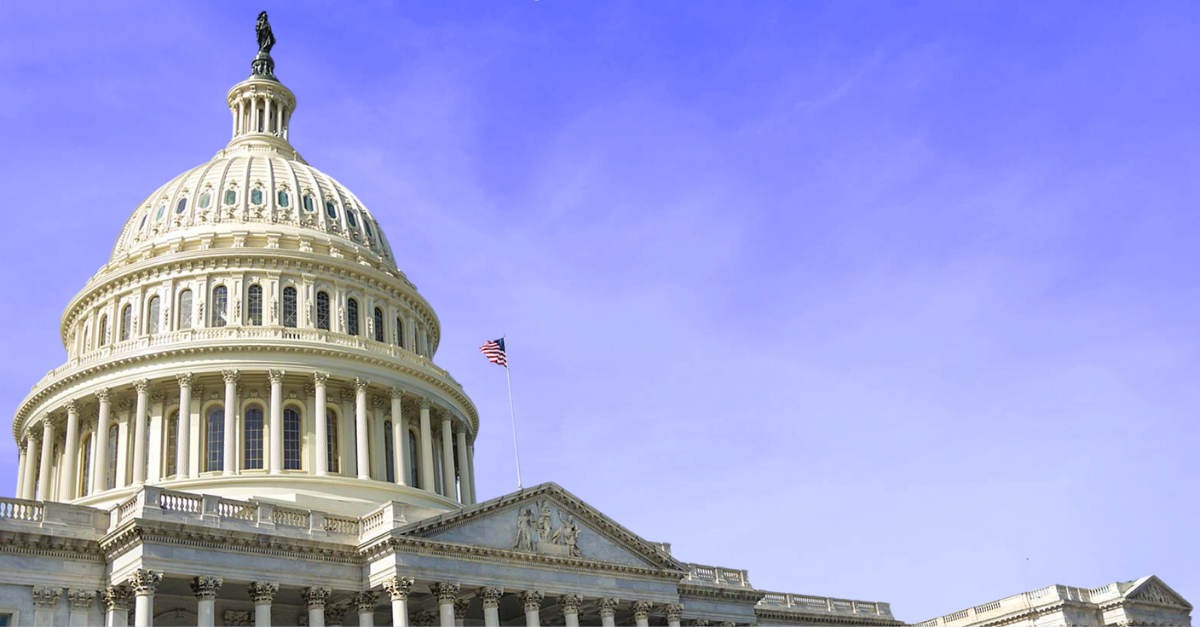First 100 Days: Upcoming Regulatory Signals for Fraud and Financial Crime
Actions impacting Fraud, BSA/AML/CFT, Bribery/Corruption, and Sanctions

KPMG Regulatory Insights
- All-Time High Risks: Reported fraud at an all-time high and continued evolving risks (with use of AI, linkages to cyber risk, etc.) by potential threat actors ‘at scale’
- Shifting Investigations/Enforcement: Administration directives change enforcement focus (e.g., Foreign Corrupt Practices Act focus on cartels and transnational criminal organizations) but do not change underlying regulations/laws
- Regulatory Tailoring: Anticipate agencies to continue amending/tailoring regulations (e.g., narrowing Beneficial Ownership Information reporting), applying them to a specific subset of companies (e.g., foreign-owned, largest by size)
__________________________________________________________________________________________________________________________________________________
April 2025
Under the new Administration, financial crimes enforcement is being recalibrated to target the priorities of the Administration and focus enforcement on “higher risk” areas while promoting economic growth and innovation. Signals for and indicators of regulatory change can be seen across:
- Fraud, including focusing on fraud against the government (e.g., fraud, waste, and abuse), focusing on consumer-related fraud, shifting enforcement of cryptocurrency/ digital assets activity, and redirecting White Collar fraud enforcement
- Financial Crimes Regulatory Framework (BSA/AML/CFT), including prioritizing areas of “higher risk,” narrowing application of the BOI reporting requirements, enhancing oversight of cross-border transactions in priority areas, and potentially finalizing amendments to certain AML/CFT program requirements (e.g., SARs filing requirements)
- Bribery and Corruption, including temporarily suspending new FCPA investigations and redirecting DOJ investigations priorities to foreign bribery that benefits cartels and transnational criminal organizations
- Sanctions, including expanding the application of sanctions to a broader group of entities (e.g., intermediaries), extending recordkeeping requirements, and reconsidering the role of certain task forces
Fraud
In its latest Data Book Report, the FTC highlights that fraud losses reported by consumers and companies in 2024 totaled more than $12.5 billion, a 25 percent increase over losses reported in 2023. Regulatory signals from the new Administration suggest a broad focus on fraud prevention, including actions to protect both the government and consumers.
Signals | Description/Examples | Source |
|---|---|---|
Focusing on fraud against the government | Implementation of Executive Orders (EOs) and other actions directed toward stopping “fraud, waste, and abuse” including:
| |
| Potential for increased/ robust enforcement of the False Claims Act (e.g., fraud against the government by contractors, customs duty and tariff evasion, healthcare fraud (such as illegal prescription, Medicare overbilling)) | Media Reports | |
Focusing on consumer-related fraud | Recommendations from GAO to develop a government-wide strategy to counter scams, to be led by the FBI in collaboration with Treasury, FTC, and CFPB, and to include issues related to:
| |
Shifting enforcement focus for cryptocurrency/digital assets
| Elimination of the National Cryptocurrency Enforcement Team and redirection of the Market Integrity and Major Frauds Unit away from digital assets to focus on immigration and procurement fraud Expectation that the focus on digital assets will prioritize investigations and prosecutions that involve criminal intent, including conduct that:
| |
Redirecting White‐Collar fraud enforcement | Collective actions of the Administration suggesting new parameters around fraud enforcement, and indicating a shift in prosecution of corporate wrongdoing to prioritize securing the integrity of U.S. markets and financial systems, tackling fraud, waste, and abuse, and recouping victim’s losses Evidenced through dropping or holds on cases against companies and reorienting priorities away from investigations that do not involve clear criminal intent/ conduct or obvious victims | Media Reports |
Financial Crimes Regulatory Framework (BSA/AML/CFT)
The Administration has taken actions to reduce certain BSA/AML/CFT (Bank Secrecy Act/Anti-Money Laundering/Countering the Financing of Terrorism) requirements for domestic companies while maintaining or increasing requirements for foreign entities, especially those deemed to be higher-risk entities (e.g., countries of concern, as identified through Executive Orders). Regulatory signals related to enforcement of BSA/AML/CFT requirements include:
Signals | Description/Examples | Source |
|---|---|---|
Prioritizing areas of “higher risk” | Intention to advocate for changes to the AML/CFT framework to focus on national security priorities and higher-risk areas (e.g., terrorist financing, cybercrime, sanctions evasion), and to “explicitly permit financial institutions to de-prioritize lower risks”; reforms may include SARs filing expectations Planned expansion of Treasury’s role in bank regulations to include:
| |
Narrowing application of BOI reporting
| Determination to narrow the application of Beneficial Ownership Information (BOI) reporting requirements under the Corporate Transparency Act to only foreign reporting companies | |
Enhancing oversight of cross-border transactions in priority areas
| Revisions to FinCEN requirement for certain money services businesses along the southwest border to report and retain records of:
| |
| Publication of an alert focused on bulk cash smuggling and repatriation by transnational criminal organizations | ||
| Enforcement action against a transportation company determined to be a “domestic financial institution” and a “money transmitter” for purposes of the BSA | ||
Outstanding proposals | Potential finalization of a proposed rule to amend FinCEN rules to explicitly require financial institutions to have effective, risk-based, and reasonably designed AML/CFT programs, including a mandatory risk assessment process and consideration/ incorporation of government-wide AML/CFT priorities (proposed June 2024) |
Bribery and Corruption
The Administration and DOJ are sending clear signals that the approach to anti-bribery enforcement, including enforcement of the Foreign Corrupt Practices Act (FCPA), is being reconsidered but remains focused on national security priorities:
Signals | Description/Examples | Source |
|---|---|---|
Temporarily suspending new investigations | Execution of Executive Order 14209, “Pausing FCPA Enforcement to Further American Economic and National Security,” which instructs the Attorney General to temporarily suspend most new FCPA investigations for 180 days, with an option to extend, to reassess enforcement processes, including a review of all ongoing cases | |
Redirecting investigations priorities | Prioritization of investigations related to foreign bribery that facilitate the criminal operations of cartels and transnational criminal organizations, and shift focus away from investigations and cases that do not involve such a connection |
Sanctions
Expanded sanctions activity signals that the Administration will use sanctions as a tool to counter illicit finance and sanctions evasion as well as to support it priorities of national security and economic growth.
Signals | Description/Examples | Source |
|---|---|---|
Expanding application
| Extension of sanctions to an expanding number of individuals and entities that facilitate and/or support (e.g., through supply chain) circumvention of U.S. sanctions/ policies regarding a primary country/ entity (e.g., Iran, China); examples include:
| |
| Execution of Executive Order 14203, “Imposing Sanctions on the International Criminal Court,” including individuals acting on behalf of the ICC against “protected persons” (e.g., citizens or legal residents in countries not party to the Rome Statute, such as the U.S.) | ||
Extending recordkeeping requirements | Adoption of a final rule extending record retention requirements from five to 10 years, to align with statutes of limitations for sanctions violations under the International Emergency Economic Powers Act (IEEPA) and the Trading with the Enemy Act (TWEA). | |
Reconsidering the role of certain task forces | Elimination of certain DOJ task forces focused on money laundering and asset forfeitures, including the Task Force KleptoCapture, as well as the Kleptocracy Team, and the Kleptocracy Asset Recovery Initiative | |
Using public-private partnership to strengthen sanctions compliance | Organization of public-private information sharing events to assist financial institutions and law enforcement better understand compliance requirements specific to sanctions targeted to one country and related “evasion networks” |
Download the full report:
First 100 Days: Upcoming Regulatory Signals for Fraud and Financial Crime
Actions impacting Fraud, BSA/AML/CFT, Bribery/Corruption, and Sanctions
Download PDFExplore more
Get the latest from KPMG Regulatory Insights
KPMG Regulatory Insights is the thought leader hub for timely insight on risk and regulatory developments.
Meet our team




